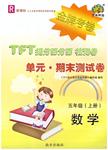题目内容
【题目】Very soon the Rabbit noticed Alice, as she went hunting about, and called out to her, “What are you doing out here? Run home this moment, and fetch me a pair of gloves and a fan! Quick, now!”
Alice was so much frightened that she ran off at once in the direction it pointed to. She saw a little house, on the door of which was a plate with the name “W. RABBIT”. She went in and hurried upstairs.
By this time she had found her way into a tidy little room with a table in the window, and on it a fan and two or three pairs of tiny white kid gloves: she took up the fan and a pair of the gloves, and was just going to leave the room, when her eye fell upon a little bottle that stood near the looking-glass. There was no label(标签) this time with the words’ DRINK ME,’ but she opened it and put it to her lips(嘴唇).”I know something interesting is sure to happen,” she said to herself. Before she had drunk half the bottle, she found her head touching the ceiling. She went on growing and very soon had to get down on her knees on the floor. Still she went on growing, and as a last resource, she put one arm out of the window, and one foot up the chimney(烟囱), and said to herself, “Now I can do no more, whatever happens. What will happen to me?”
Luckily for Alice, she grew no longer: still it was very uncomfortable, and as there seemed to be no sort of chance of her ever getting out of the room again, no wonder she felt unhappy.
【1】According to the passage, we can know that Alice __________.
A. felt comfortable when she grew no longer
B. was afraid when the Rabbit called out to her
C. knew what would happen to her if she continued to grow
D. saw a label “DRINK ME” on the bottle and drank half of it
【2】Alice grew so big because she __________.
A. had special magical power
B. wore the Rabbit’s gloves.
C. drank something in the bottle
D. wanted to frighten the Rabbit
【3】Which of the following could best replace the underlined word “resource” in Paragraph 3?
A. way B. dream C. ending D. loss
【4】The passage may come from a(an) __________.
A. science book B. wildlife magazine
C. guide book D. English novel
【答案】
【1】B
【2】C
【3】A
【4】D
【解析】
试题分析:这篇文章是爱丽丝梦游仙境中的一段,讲的是爱丽丝刚到仙境时在兔子的小屋中喝下了变大的药水,然后身体变得非常大这一段。
【1】推理判断题。由文中最后一段第一句“she grew no longer: still it was very uncomfortable”可知,爱丽丝不再变大了,但仍然处于不舒服的姿势。故选项A排除。由倒数第二段最后一句“Now I can do no more, whatever happens. What will happen to me?”现在无论发生什么,我也什么都做不了了,还有什么会在我身上发生呢?,可知,爱丽丝这时不知道如果自己继续变大会发生什么,故选项C排除。由第三段第二句“There was no label(标签) this time with the words’ DRINK ME,’“和第四句“Before she had drunk half the bottle”在她喝完半瓶之前,可知,瓶子上没有标签,只有一句“请喝我”。并且她没有喝到半瓶。故选项D排除。
由第二段第一句“Alice was so much frightened that she ran off at once in the direction it pointed to.”可知,爱丽丝非常害怕,以至于她立刻像它所指的方向逃跑了。故选B。
【2】细节理解题。由第三段第四句“Before she had drunk half the bottle, she found her head touching the ceiling“ 可知,在她喝到半瓶之前,她发现她的头触到了天花板。故选C。
【3】词义猜测题。由倒数第二段最后一句“Still she went on growing, and as a last resource, she put one arm out of the window, and one foot up the chimney(烟囱)”可知,爱丽丝仍在变高,作为最后一个办法,她把一只手臂伸出窗外,把一只脚伸向烟囱。四个选项中只有选项A符合句子的意思。故选A。
【4】文章出处题。这篇文章讲的是一篇大家都熟知的小说《爱丽丝梦游仙境》,所以,文章的出处为英国的小说。故选D。

 提分百分百检测卷单元期末测试卷系列答案
提分百分百检测卷单元期末测试卷系列答案